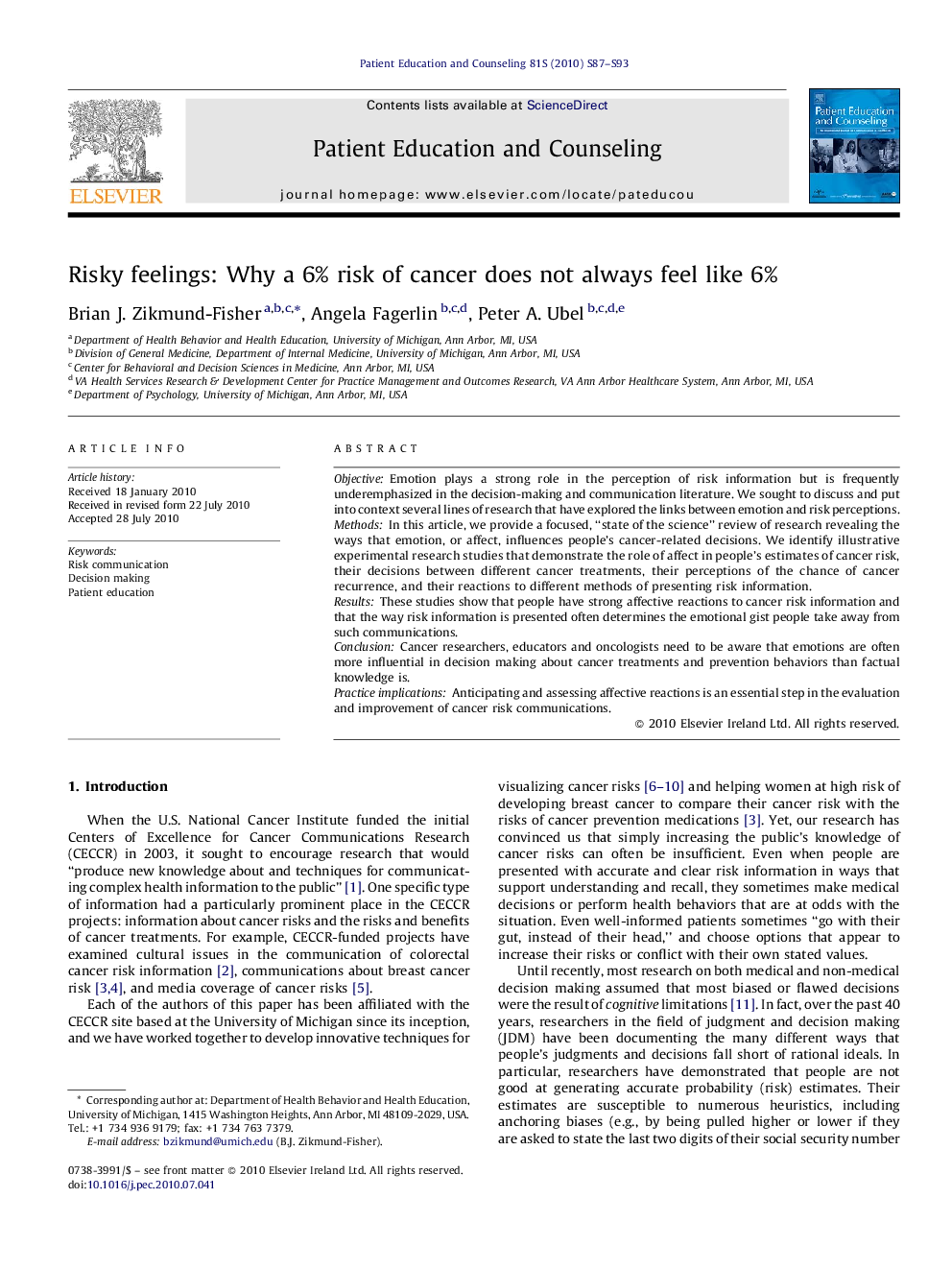| Article ID | Journal | Published Year | Pages | File Type |
|---|---|---|---|---|
| 3814795 | Patient Education and Counseling | 2010 | 7 Pages |
ObjectiveEmotion plays a strong role in the perception of risk information but is frequently underemphasized in the decision-making and communication literature. We sought to discuss and put into context several lines of research that have explored the links between emotion and risk perceptions.MethodsIn this article, we provide a focused, “state of the science” review of research revealing the ways that emotion, or affect, influences people's cancer-related decisions. We identify illustrative experimental research studies that demonstrate the role of affect in people's estimates of cancer risk, their decisions between different cancer treatments, their perceptions of the chance of cancer recurrence, and their reactions to different methods of presenting risk information.ResultsThese studies show that people have strong affective reactions to cancer risk information and that the way risk information is presented often determines the emotional gist people take away from such communications.ConclusionCancer researchers, educators and oncologists need to be aware that emotions are often more influential in decision making about cancer treatments and prevention behaviors than factual knowledge is.Practice implicationsAnticipating and assessing affective reactions is an essential step in the evaluation and improvement of cancer risk communications.
